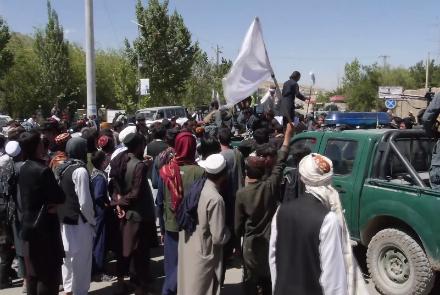The US State Department says in a report that the Pakistani government vowed support to the peace talks between the Afghan government and the Taliban but did not restrict the group and Haqqani network from operating in Pakistan-based safe havens and threatening US and Afghan forces in Afghanistan.
The department said Afghanistan continued to experience aggressive and coordinated attacks by the Taliban, including the affiliated Haqqani network and other insurgent and terrorist groups.
“A number of these attacks were planned and launched from safe havens in Pakistan,” the US State Department said in an annual country report on counterterrorism and countering violent extremism for 2017.
The report says the Pakistani military and security forces undertook operations against groups that conducted attacks within Pakistan, such as Tehrik-e-Taliban Pakistan and also commended that such operations in the Fata area seriously degraded al-Qaeda's presence in the region and the group's freedom to operate.
However, the report said that “remnants of AQ's global leadership as well as its regional affiliate al-Qaeda in the Indian Subcontinent (AQIS), continued to operate from remote locations in the region that historically have been exploited as safe havens”.
The report, which was released on September 19, says the Afghan National Defense and Security Forces (ANDSF) retained full responsibility for security in Afghanistan. In partnership, the ANDSF and coalition forces took aggressive action against terrorist elements across Afghanistan, including against Daesh’s branch in the region, Islamic State's Khorasan Province (ISIS-K).
The report says that Pakistan did not take sufficient action against other externally focused groups such as Lashkar-e-Taiba and Jaish-e-Muhammad in 2017, which continued to operate, train, organize and fundraise in Pakistan.
“Pakistan detained Hafiz Saeed, the leader of LeT and its front organization Jamaatud Dawa in January 2017, but a Pakistani court ordered Hafiz Saeed released from house arrest in November 2017,” the report said.
The US State Department’s report says India continued to experience attacks, including by Pakistan-based terrorist organizations as well as tribal and Maoist insurgents, the report said.
“Indian authorities blamed Pakistan for cross-border attacks in the state of Jammu and Kashmir. Over the course of 2017, the government of India sought to deepen counterterrorism cooperation and information sharing with the United States, including through the first-ever designations dialogue, held in Delhi in December,” it added.
According to the report, counterterrorism cooperation between India and the United States increased in 2017. The two pledged to strengthen cooperation against terrorist threats from groups, including al-Qaeda (AQ), ISIS, Jaish-e-Mohammad (JeM), Lashkar-e-Taiba (LeT), and D-company, the report said.
“The Taliban, the affiliated Haqqani Network (HQN) and groups claiming affiliation with the Islamic State's Khorasan Province (ISIS-K) increased high-profile terrorist attacks targeting Afghan government officials and members of the international community. Terrorist groups targeting Pakistan, such as Tehrik-e-Taliban Pakistan, exploit ungoverned spaces in the Afghanistan-Pakistan border region, using them as safe havens to coordinate terrorist attacks inside Pakistan,” the report said.
The US report said that the total number of terrorist attacks worldwide in 2017 decreased by 23 percent and total deaths due to terrorist attacks decreased by 27 percent, compared to 2016.
“Although terrorist attacks took place in 100 countries in 2017, they were concentrated geographically. Fifty-nine percent of all attacks took place in five countries (Afghanistan, India, Iraq, Pakistan, and the Philippines), and 70 percent of all deaths due to terrorist attacks took place in five countries (Afghanistan, Iraq, Nigeria, Somalia, and Syria)," said Nathan Sales, coordinator for counterterrorism at the department.
Speaking with reporters before launching the country counterterrorism report, he said that Iran remains state sponsor of terrorism. He said that the country brought resources across the globe to facilitate terrorist activities.
“Iran remains the world's leading state sponsor of terrorism and is responsible for intensifying multiple conflicts and undermining US interests in Syria, in Yemen, in Iraq, in Bahrain, in Afghanistan, and in Lebanon, using a number of proxies and other instruments such as Lebanese Hizballah and the Islamic Revolutionary Guard Corp's Quds Force. The threats posed by Iran's support for terrorism are not confined to the Middle East; they are truly global,” he said.


